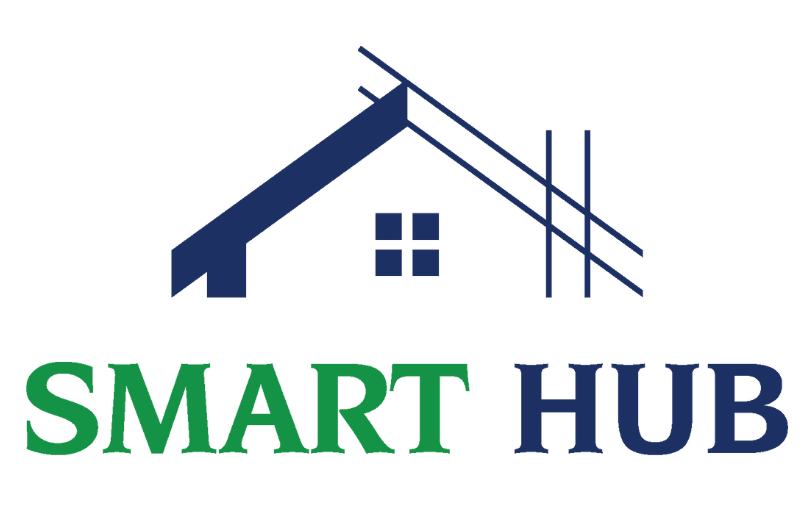Introduction
Pakistan’s construction industry is undergoing a transformation, thanks to advancements in technology. One of the most exciting developments is the rise of smart construction, a modern approach that leverages cutting-edge tools and techniques to make building processes more efficient, safe, and sustainable. From using drones for site surveys to integrating Internet of Things (IoT) devices into buildings, smart construction is changing the way structures are designed, built, and maintained.
In this article, we’ll explore what smart construction is, why it matters in Pakistan, and how it can benefit both builders and homeowners.
What is Smart Construction?
At its core, smart constructions refers to the use of advanced technologies to improve every stage of the construction process, including planning, design, execution, and maintenance. Unlike traditional methods that rely heavily on manual labor and outdated tools, smart construction incorporates innovations such as:
- Building Information Modeling (BIM): A digital representation of physical spaces that helps architects and engineers visualize projects before they’re built.
- IoT Devices: Sensors embedded in buildings to monitor temperature, humidity, structural integrity, and energy usage.
- Automation and Robotics: Machines that perform repetitive tasks like bricklaying or welding with precision and speed.
- Drones: Used for aerial surveys, progress tracking, and safety inspections.
For example, imagine a building where lights automatically adjust based on occupancy, HVAC systems optimize energy consumption, and structural health is monitored in real-time. These are just some of the possibilities enabled by smart constructions.
Why Smart Construction Matters in Pakistan
Pakistan’s construction sector faces several challenges, including:
- Resource Scarcity: Limited access to high-quality materials and skilled labor.
- Safety Concerns: Accidents and inefficiencies on construction sites.
- Environmental Impact: High carbon emissions and waste generation.
Smart constructions offers solutions to these problems. For instance:
- Automated machinery reduces reliance on manual labor, addressing skill shortages.
- IoT sensors enhance worker safety by identifying hazards early.
- Energy-efficient designs lower operational costs and reduce environmental harm.
By adopting smart constructions practices, Pakistan can build better infrastructure while conserving resources and improving living standards.
Benefits of Smart Construction in Pakistan
Cost Efficiency
- BIM reduces errors during planning, minimizing costly rework.
- IoT devices help detect issues early, preventing expensive repairs later.
Improved Safety
- Worker safety is a major concern in Pakistan’s construction industry.
- Drones and wearable tech allow supervisors to monitor conditions remotely and respond quickly to emergencies.
Faster Project Completion
- Automation speeds up tasks like excavation, concrete pouring, and finishing work.
- Ensures projects are completed on schedule, even when deadlines are tight.
Enhanced Sustainability
- Smart constructions promotes sustainability by optimizing resource use and reducing waste.
- Smart lighting systems only activate when needed, saving electricity.
Smart Construction Technologies Used in Pakistan
Building Information Modeling (BIM)
- Architects and engineers use BIM software to create detailed 3D models of buildings.
- Helps stakeholders identify potential issues before construction begins, saving time and money.
IoT-Enabled Devices
- Sensors installed in buildings track air quality, temperature, and water leaks.
- Data collected helps property owners maintain their assets proactively.
Drones and Robotics
- Drones capture aerial footage of construction sites, providing valuable insights into progress and safety compliance.
- Robotic equipment handles dangerous or tedious jobs, freeing up human workers for higher-value tasks.
Case Studies: Smart Construction in Pakistan
While smart constructions is still relatively new in Pakistan, there are promising signs of adoption.
- In Lahore, a leading developer used BIM to design a commercial complex, resulting in a 20% reduction in material waste.
- In Karachi, a residential project incorporated IoT sensors to monitor energy usage, achieving significant savings on utility bills.
These success stories demonstrate the potential of smart constructions to revolutionize Pakistan’s building landscape.
Future Trends in Smart Construction
The future of constructions in Pakistan will likely be shaped by the following trends:
- AI-Powered Design Tools: Artificial intelligence will assist architects in creating optimized layouts tailored to specific needs.
- Self-Healing Materials: Innovations in materials science could lead to self-repairing concrete and other durable substances.
- Augmented Reality (AR): AR apps will allow clients to “walk through” virtual versions of their homes before construction starts.
As these technologies mature, Pakistan’s construction sector will become more competitive globally.
Challenges to Adopting Smart Construction in Pakistan
Despite its many benefits, smart constructions faces hurdles in Pakistan:
- High Initial Costs: Advanced tools and training require substantial investment.
- Skill Gaps: Many workers lack experience with digital technologies.
- Resistance to Change: Some builders prefer sticking to traditional methods rather than experimenting with new approaches.
To overcome these barriers, government incentives, private-sector partnerships, and educational programs will be crucial.
Conclusion
Smart constructions represents the future of building—not just in Pakistan but worldwide. By embracing innovative technologies, Pakistan can address longstanding challenges, boost productivity, and create safer, greener environments for its citizens.
Whether you’re a builder, architect, or homeowner, now is the time to explore the possibilities of smart construction.
Ready to take your project to the next level? Contact us today at Smart Hub Construction to learn how our smart constructions solutions can bring your vision to life!

